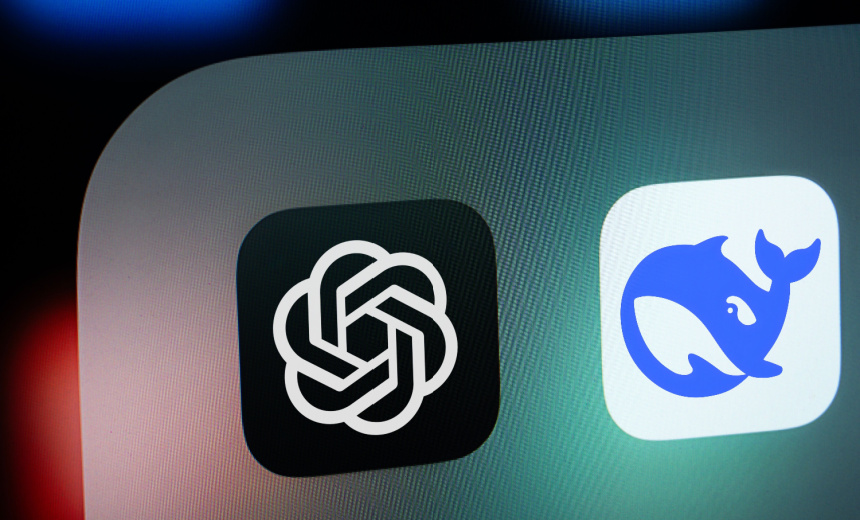Artificial Intelligence & Machine Learning
,
Next-Generation Technologies & Secure Development
OpenAI and Microsoft Reportedly Investigate DeepSeek API Access

The low-cost miracle of the DeepSeek-R1 model may not in fact be one as accusations surfaced Tuesday and Wednesday that the Chinese company may have derived its reasoning model from U.S. firm OpenAI.
See Also: OnDemand | AI in the Spotlight: Exploring the Future of AppSec Evolution
OpenAI and Microsoft are investigating whether DeepSeek stole information from OpenAI through an application programming interface, reported Wednesday. Researchers from Microsoft – OpenAI’s largest investor – reportedly observed “individuals they believe may be linked to DeepSeek exfiltrating a large amount of data” last fall.
Friday’s widespread introduction of the R1 model sent shockwaves as investors this week drove down the share prices of U.S. tech companies on news that DeepSeek developed the technology underpinning the R1 model for a fraction of the price needed by U.S. developers. DeepSeek said it cost just $5.6 million training its V3 model and needed just 2,048 Nvidia chips designed to be complaint with American export controls on advanced technology sales to China. Mainstay U.S. foundation model developers report needing hundreds of millions and upwards of tens of thousands of advanced chips to train models (see: DeepSeek’s New AI Model Shakes American Tech Industry).
Share prices of AI chip-powerhouse Nvidia recovered somewhat on Tuesday but are currently on track to wipe out much of those relative gains as of mid-day (see: How China’s DeepSeek-R1 Model Will Disrupt the AI Industry).
White House AI and cryptocurrency czar David Sacks told Fox News Tuesday evening that there’s “substantial” evidence that DeepSeek may have engaged in knowledge distillation from OpenAI to power its own models. During training, AI models “can mimic the reasoning process that they learn from the parent model and they can kind of suck the knowledge of the parent model,” Sacks said.
“There’s substantial evidence that what DeepSeek did here is they distilled the knowledge out of OpenAI’s models, and I don’t think OpenAI is very happy about this,” he said.
Newly appointed White House Press Secretary Karoline Leavitt said Tuesday the National Security Council is reviewing implications of the model. She echoed President Donald Trump, who earlier in the day called the Chinese-made model “a wake-up call” for the American AI industry.
The Navy warned members Friday not to use DeepSeek due to “potential security and ethical concerns associated with the model’s origin and usage,” reported CNBC.
DeepSeek was founded in 2023 by Chinese entrepreneur Liang Wenfeng with funds from High Flyer, his quantitative hedge fund. The United States has sought to hold back Chinese development of advanced technologies with tools developed by American companies, launching a ratcheting set of export controls to constrain sales of chips used to train AI models. In fall 2023, they grew to include the H800 Nvidia chips the designer engineered to be compliant with an earlier set of controls. Whether controlling exports will work is an open question, especially given the apparent success of DeepSeek (see: DeepSeek’s Rise Shows Limits of US Chip Controls).
Former Commerce Secretary Gina Raimondo told the Wall Street Journal in December 2024 that a chokepoint approach is destined for failure. “Trying to hold China back is a fool’s errand,” she said, touting instead innovation using the $53 billion appropriated for domestic semiconductor research and innovation of the CHIPS and Science Act, which became law in August 2022.
“The only way to beat China is to stay ahead of them,” she told the Journal. “We have to run faster, out innovate them. That’s the way to win.”
